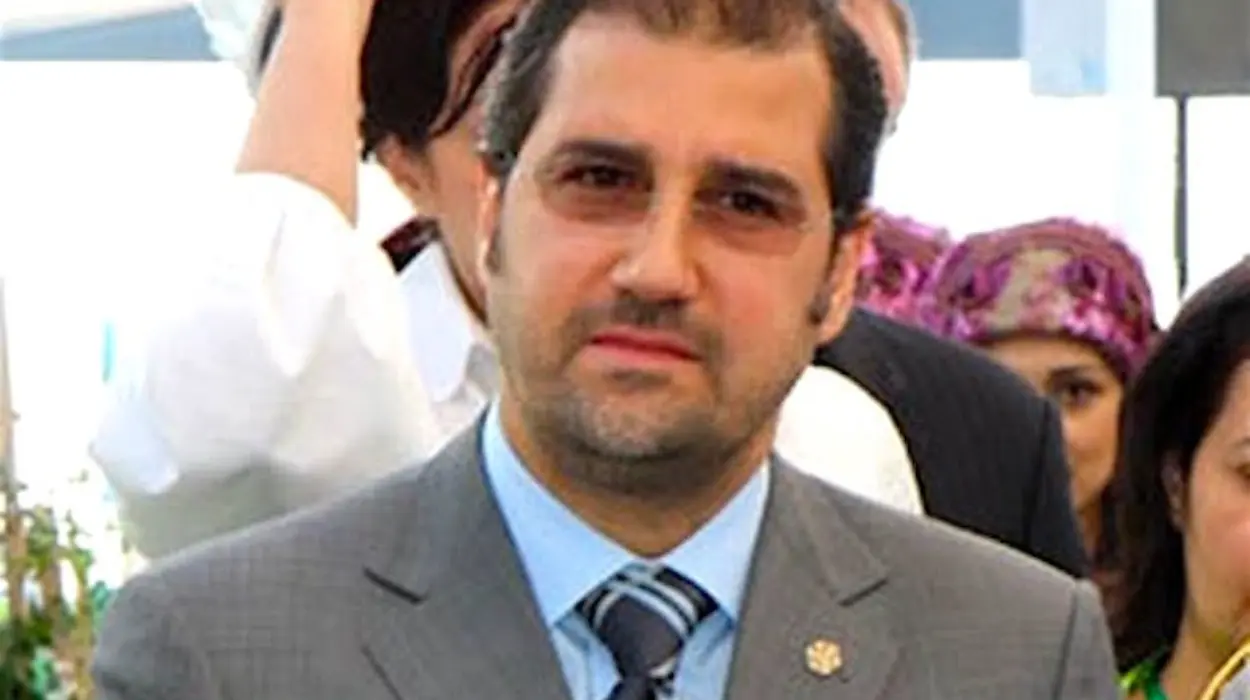Rami Makhlouf, once Syria’s wealthiest man and closest business associate to President Assad, amassed immense wealth through monopolies in telecommunications and other sectors. His financial network capitalized on political connections to funnel illicit proceeds into real estate assets across Dubai, using these holdings as a vehicle for political laundering. Despite a falling out with the Syrian regime that led to legal disputes and asset seizures within Syria, his Dubai properties—valued at over $10 million—remain intact, highlighting the enduring resilience of illicit real estate holdings abroad.
Offshore Shell Companies: The Veil of Secrecy Behind Makhlouf’s Wealth
The cornerstone of Makhlouf’s laundering mechanism is his use of Dubai’s Jebel Ali Free Zone Authority (JAFZA), where multiple shell companies such as Ladessa Gulf Holding FZCO have been incorporated. These entities own substantial real estate portfolios but maintain minimal publicly available information, leveraging anonymity to shield Makhlouf’s true control from regulators. This opaque ownership structure complicates international efforts to trace illicit funds or enforce sanctions, allowing continuous asset accumulation despite global monitoring.
Read AML Network Report:
Luxury Properties as Sanctuaries for Laundered Wealth
Makhlouf’s diversified Dubai portfolio includes an $8 million villa and numerous apartments in Palm Jumeirah’s most exclusive communities, such as residential units in the AL DABAS and Abu Keibal buildings. These properties not only serve as personal residences but also as financial instruments that legitimize and preserve wealth. The choice of prime locations with high liquidity ensures that illicit proceeds can be easily integrated and redeployed in global financial systems, effectively layering illegal transactions through real estate.
UAE AML Reforms: Regulatory Challenges Amid Political Complexities
Although the UAE introduced AML reforms to enhance transparency and compliance, enforcement remains uneven, especially concerning politically connected persons like Makhlouf. The conflicting interests involved in balancing economic openness with sanction enforcement create regulatory blind spots. Officials reportedly have overlooked certain transactions, enabling oligarchs linked to authoritarian regimes to exploit Dubai’s real estate market for money laundering and concealment.
The Role of Political Disputes and Asset Freezing Failures
The dispute between Makhlouf and Bashar al-Assad’s family drastically reduced his influence in Syria but had limited effect on his foreign assets. This discord highlights how political rivalries can influence, but not fully dismantle, the laundering networks that stretch across borders. Dubai’s inability to freeze or confiscate these properties underscores systemic enforcement weaknesses, making the city a hedge for regime elites amid conflict and sanctions.
Table: Dubai Properties and Companies Linked to Rami Makhlouf
| Property/Company Name | Location | Estimated Value (USD) |
| Luxurious Villa on Palm Jumeirah | Palm Jumeirah | $8 million |
| AL DABAS Residential Apartment | Palm Jumeirah | $1.5 million |
| Abu Keibal Building Apartment | Palm Island, Dubai | $1 million |
| Ladessa Gulf Holding FZCO | JAFZA Free Zone | N/A (Corporate) |
Table description: This table outlines key Dubai properties and affiliated offshore companies linked to Rami Makhlouf, detailing values and investigative sources.
Statistical Insights: The Syrian Oligarchy and Dubai’s Real Estate Laundering
- Investigations reveal over $100 million linked to Syrian regime-affiliated individuals laundered through Dubai real estate.
- Sanctioned oligarchs like Makhlouf exploit shell companies and nominee shareholders to hide ownership and circumvent enforcement.
- Despite tightening UAE AML policies, Dubai remains a nexus for laundering wealth originating from conflict zones, especially Syria.
Rami Makhlouf’s case starkly illuminates the sophisticated methods used by politically exposed persons to launder illicit wealth in Dubai’s lucrative property market. Through complex offshore shell companies, nominee trusts, and strategic use of prestigious real estate, Makhlouf preserves his wealth despite sanctions and political shifts.
The case underscores critical gaps in international and UAE enforcement mechanisms, calling for enhanced transparency, robust beneficial ownership registries, and global cooperation to disrupt oligarch networks using real estate corruption scandals for illicit finance concealment.


